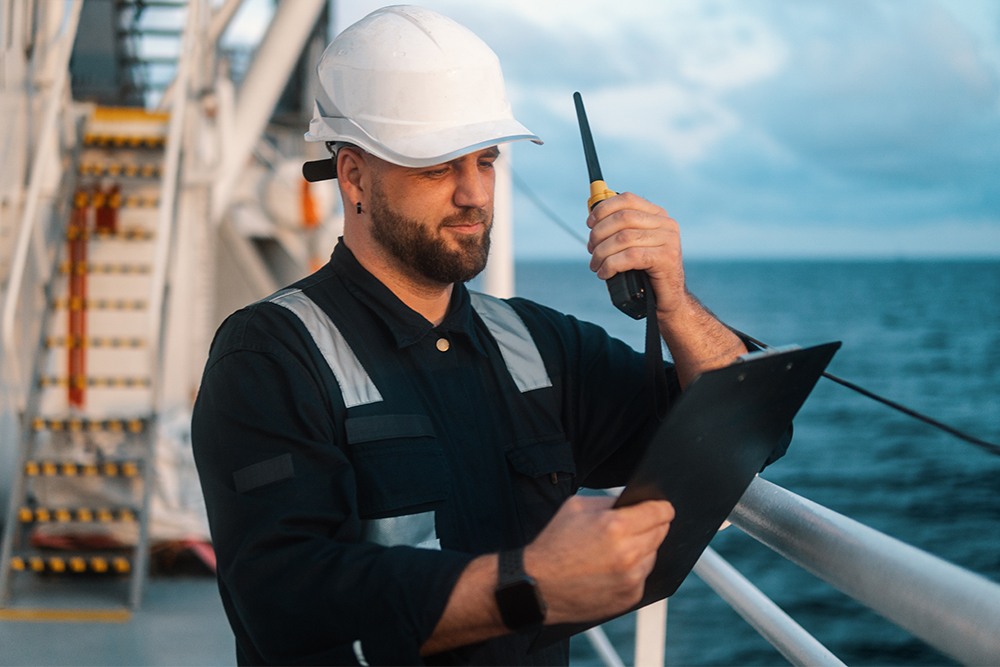Florida’s economy relies heavily on the maritime industry, which offers nearly 66,000 jobs to its residents and generates a gross economic impact of 14.6 billion dollars annually. However, working in this sector can also entail significant risks and challenges, as workers may face an offshore injury while performing their duties. When such accidents happen, workers deserve fair compensation but navigating the legal process of pursuing an offshore injury claim can be complex and challenging. In this article, we will discuss X things you should know, including what the most common injuries are, and the role of maritime law in offshore injury cases.
1. What Kind of Injuries Are Common With Offshore Work in Florida?
Offshore workers face numerous hazards on a daily basis. These hazards can result in a variety of injuries, ranging from minor to severe. Some of the most common offshore injuries include:
- Wet Conditions Cause Slip and Fall Injuries. Slip and fall accidents are one of the leading causes of offshore injury due to dangerous and wet conditions on cruise ships, vessels, and oil rigs. Slick decks, improper maintenance, and inadequate safety measures can contribute to slip and fall accidents, which can cause injuries like mild bruises and sprains to severe fractures, traumatic brain injuries, and spinal cord damage.
- Back Injuries From Lifting. Offshore workers frequently perform heavy lifting tasks, which can result in back injuries, herniated discs, and other musculoskeletal disorders. Poor lifting techniques and inadequate training can exacerbate these risks.
- Contact With Chemicals and Hazardous Materials. Offshore workers may be exposed to hazardous materials, such as solvents, acids, lubricants, fuel oils, or other chemicals. These substances can cause skin irritation, respiratory irritation, or even more serious illness.
- Blunt Injuries From Being Struck. Heavy equipment, swinging lines, and falling objects are common hazards on offshore vessels and platforms. Workers may suffer injuries from being struck by winches, booms, or other equipment, resulting in bruises, lacerations, fractures, and head injuries.
- Equipment or Machinery Accidents. The operation of heavy machinery in unstable conditions or low visibility can lead to entanglement or crushing accidents. Workers may suffer serious injuries to their hands, legs, or other body parts when caught in machinery or equipment.
- Burn Injuries From Fire-Related Accidents. Offshore workers may be exposed to fire hazards, chemical burns from caustic substances, or electrical burns due to wet conditions. These injuries can result in severe skin damage, permanent blindness, or the need for reconstructive surgery.
- Suffocation, Asphyxiation, or Chemical Inhalation. Working in enclosed spaces or below deck can expose workers to toxic fumes or oxygen-deprived environments. These types of offshore worker injuries may result in long-term health issues or even death.
- Cumulative Injuries Like Repetitive Motion Disorder. Performing the same motions repeatedly can lead to repetitive motion disorders (RMDs), which can affect various parts of the body, including arms, hands, back, neck, hips, legs, ankles, or feet. RMDs often develop over time and may go unreported.
While injuries are far more likely to occur to workers who are in consistently in offshore environments, that doesn’t mean that injuries don’t happen to non-worker personnel. For example, guests aboard a cruise ship may experience food poisoning, slip and fall accidents, or even infections from unsanitary conditions. In more serious cases, guests of cruise lines may find themselves suing for medical malpractice or wrongful death claims. So, whether you’re a worker on an offshore rig or a guest on a vessel, it’s important to know what the role of maritime law is and what your rights are, so that you can go for help in the event of an accident.
2. The Role of Maritime Law & The Types of Compensation Offshore Workers Can Seek in An Offshore Injury Case?
Maritime law, also known as admiralty law, governs accidents and injuries that occur on or around any body of water. This complex branch of law is essential for offshore workers in Florida, as it impacts their legal rights and options when seeking compensation for injuries sustained on the job. Maritime law covers a wide range of cases, including but not limited to: vessel collisions, oil spills, wrongful death claims, medical malpractice claims, and work-related injuries. There are three major acts that offshore workers need to be aware of: the Outer Continental Shelf Lands Act (OCSLA), the Jones Act, and if you’re a dockworker – the Longshore and Harbor Worker’s Compensation Act
Outer Continental Shelf Lands Act (OCSLA)
The Outer Continental Shelf Lands Act (OCSLA) is a federal law that applies to workers who are employed on offshore structures, such as oil rigs, platforms, or vessels, that are located on the outer continental shelf of the United States. The outer continental shelf is the submerged land that extends from the coast to the edge of the continental margin.
OCSLA provides two types of benefits for injured offshore workers: statutory benefits and extension-of-law benefits.
OCSLA is similar to the Jones Act, which covers seamen who work on vessels in navigable waters, but there are some differences in eligibility and coverage between the two laws.
The Jones Act
The Jones Act is a federal law that was enacted in 1920 to protect the rights of seamen who suffer injuries while working on vessels. Under the Jones Act, seamen are defined as workers who spend at least 30% of their time on a vessel or fleet of vessels under common ownership and control. The Jones Act allows injured seamen to sue their employers for negligence in federal court and seek compensation for their medical expenses, lost wages, pain and suffering, and other damages. The Jones Act also requires employers to provide a safe and seaworthy work environment for their seamen and to pay them maintenance and cure benefits regardless of fault.
The Longshore and Harbor Worker’s Compensation Act
The Longshore and Harbor Worker’s Compensation Act (LHWCA) is a federal law that provides benefits to workers who are injured or become ill while performing maritime work on or near navigable waters. The LHWCA covers workers such as longshoremen, harbor workers, shipbuilders, ship repairers, and other maritime employees. The LHWCA also extends coverage to certain other workers who are exposed to the hazards of maritime employment, such as contractors working on offshore oil platforms, civilian employees of military bases, and employees of companies that provide services to the U.S. Navy. The LHWCA provides benefits such as medical care, disability compensation, vocational rehabilitation, and death benefits to eligible workers and their dependents.
3. Employer Resistance On “No-Fault” Benefits is Common
If you work offshore and get injured on the job, you may be entitled to benefits under the Jones Act or OCSLA. However, you cannot trust your employer to pay you fairly and promptly. Many companies try to deny or delay claims for “no-fault” benefits, leaving injured workers in a difficult situation. That’s why you need to contact an experienced offshore injury attorney at Personal Injury of Florida, who can represent you and fight for the full compensation you deserve.
4. What Steps Should You Take Following An Offshore Injury?
After suffering an offshore injury, workers should take the following steps to protect their rights and preserve their ability to seek compensation:
a) Report the injury to a supervisor or employer immediately.
b) Seek medical attention as soon as possible.
c) Document the incident, including taking photos of the scene and obtaining witness statements.
d) Follow all prescribed medical treatments and therapies.
e) Consult with an experienced offshore injury attorney.
5. The Statute of Limitations for Offshore Injury Claims
If you are an offshore worker who has been injured on the job, you may be wondering how long you have to file a claim for compensation. Those filing a claim against their employer for negligence or unseaworthiness as described under the Jones Act, will have three years from the date of their injury to file a claim.
The Maritime/Admiralty Law is another area of law that covers accidents and injuries that occur on or near the water. This law applies to workers who are not seamen, such as dockworkers, harbor workers, longshoremen, and offshore oil rig workers. It also applies to passengers and recreational boaters who are injured by the negligence or wrongdoing of others. The Maritime/Admiralty Law provides various remedies and benefits for injured parties, such as maintenance and cure, unearned wages, and the right to sue for negligence. Like the Jones Act, the Maritime/Admiralty Law also has a three-year statute of limitations for filing a claim. This means that you must file your claim within three years from the date of your injury or accident, otherwise you may lose your right to sue.
6. Compensation Options for Offshore Worker Injury
Injured offshore workers may be entitled to various forms of compensation, including:
a. Medical expenses (past and future).
b. Lost wages and lost earning capacity.
c. Pain and suffering.
d. Mental anguish.
e. Loss of enjoyment of life.
f. Disability or disfigurement.
Offshore injuries are a serious concern for many Florida workers, and understanding the legal rights and options available is crucial for those impacted by such accidents. If you have been injured in an offshore accident, the attorneys at Personal Injury of Florida can help you determine which type of claim you can file, what damages you can recover, and how to preserve your evidence and protect your rights. Do not delay in seeking legal advice, as missing the statute of limitations can prevent you from obtaining the compensation you deserve. Contact us today for a free consultation at 561-507-5700.
![]() October 19, 2023
October 19, 2023




